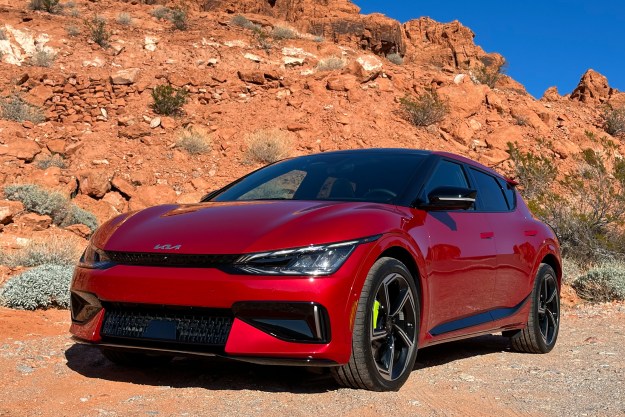After focusing on electric cars aimed at the mass market, Volkswagen is shifting its attention to a more high-end EV. Project Trinity is expected to offer more sophisticated tech than the ID family of affordable EVs currently being rolled out by VW, but other details are scarce.
Trinity will be VW’s next EV development program, and will involve an overhaul of the automaker’s hometown factory in Wolfsburg, Germany, VW Group CEO Herbert Diess tweeted last week. In a LinkedIn post (which seems to have been deleted), Ralf Brandstätter, CEO for VW passenger cars, said Trinity will be composed of three elements, as the name suggests.
The first element will be a new EV platform, distinct from the MQB platform used for the ID electric cars. The second will be advanced driver-assist tech, likely equivalent to General Motors’ Super Cruise or Tesla’s Autopilot. This will eventually be upgraded to reach Level 4 on the Society of Automotive Engineers (SAE) autonomous-driving scale, Brandstätter said. No automaker has reached this advanced level with a production vehicle, however, and that level of technology still exists in a regulatory gray area.

The third element will be a “radically new production approach,” Brandstätter said, likely referring to the upgrades at VW’s Wolfsburg factory that Diess mentioned. The VW Group CEO implied that the Wolfsburg site will compete with Tesla’s new Germany factory, which is currently under construction near Berlin.
Beyond that, it’s unclear what Project Trinity will be. Roadshow speculated that Trinity could be VW’s version of Landjet, a previously reported project to develop a high-end EV for Audi, Bentley, and Porsche. VW owns all three automakers, and sharing between them is common. For example, the current Audi Q7, Bentley Bentayga, and Porsche Cayenne SUVs all share a common platform, while the upcoming Audi E-Tron GT electric car will share components with the Porsche Taycan.
Meanwhile, VW is continuing to roll out its mass-market ID models, starting with the ID.3 hatchback in Europe and the ID.4 crossover in the United States. Additional ID models are also planned, including a modern version of the classic VW Microbus, although that’s been delayed and won’t arrive in the U.S. until 2023 at the earliest.
Editors' Recommendations
- Fake engine noises in electric cars need to die
- Genesis Neolun concept is an electric SUV inspired by tradition
- 2024 Dodge Charger Daytona reinvents the muscle car for the EV era
- Apple’s car project has apparently conked out
- Mercedes’ electric eSprinter isn’t just greener, it’s better


